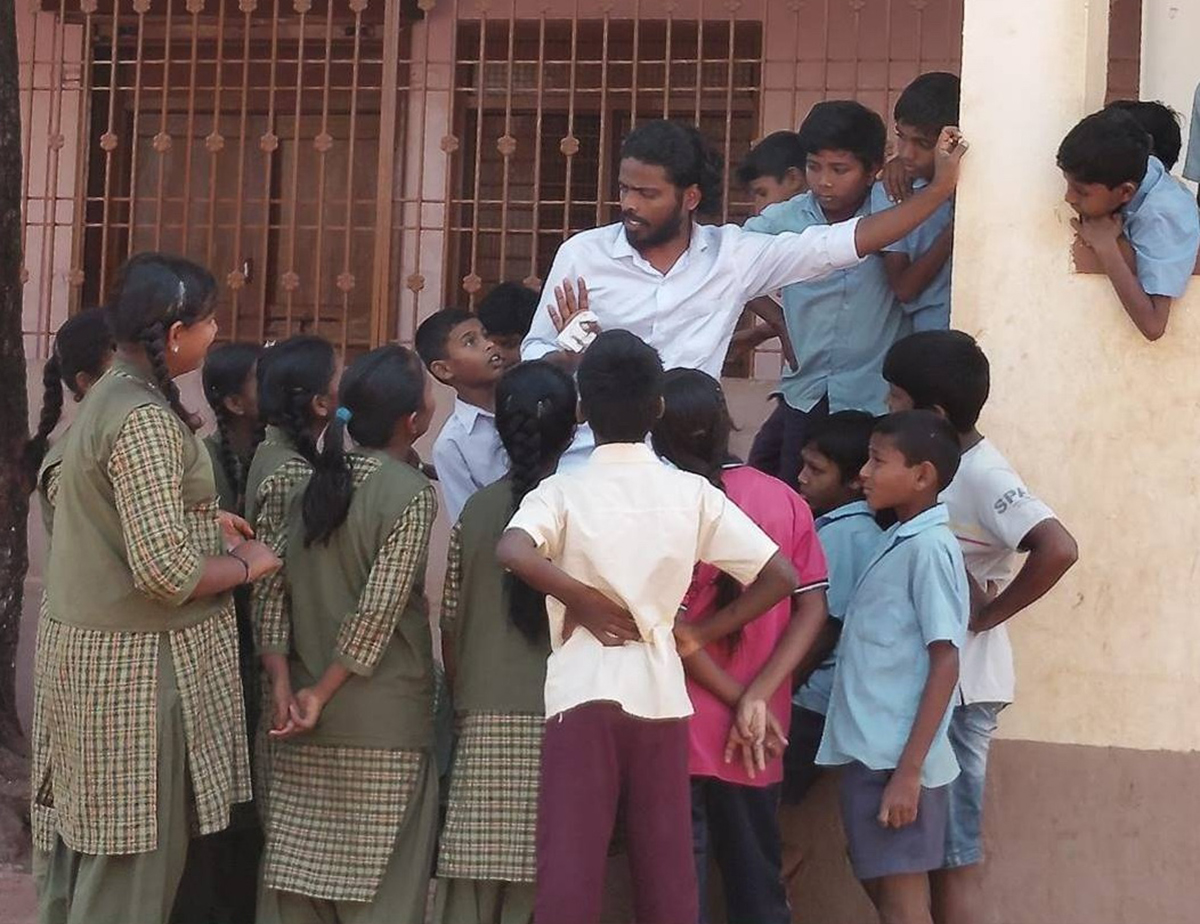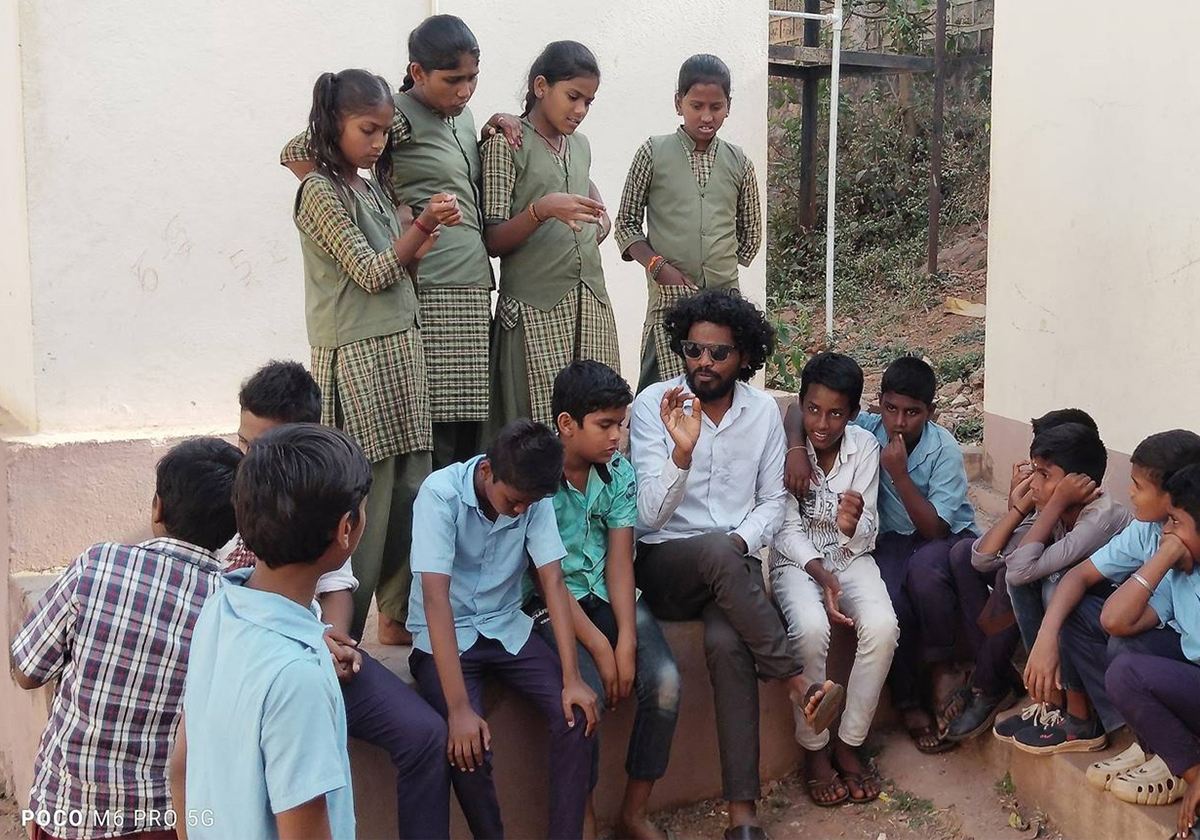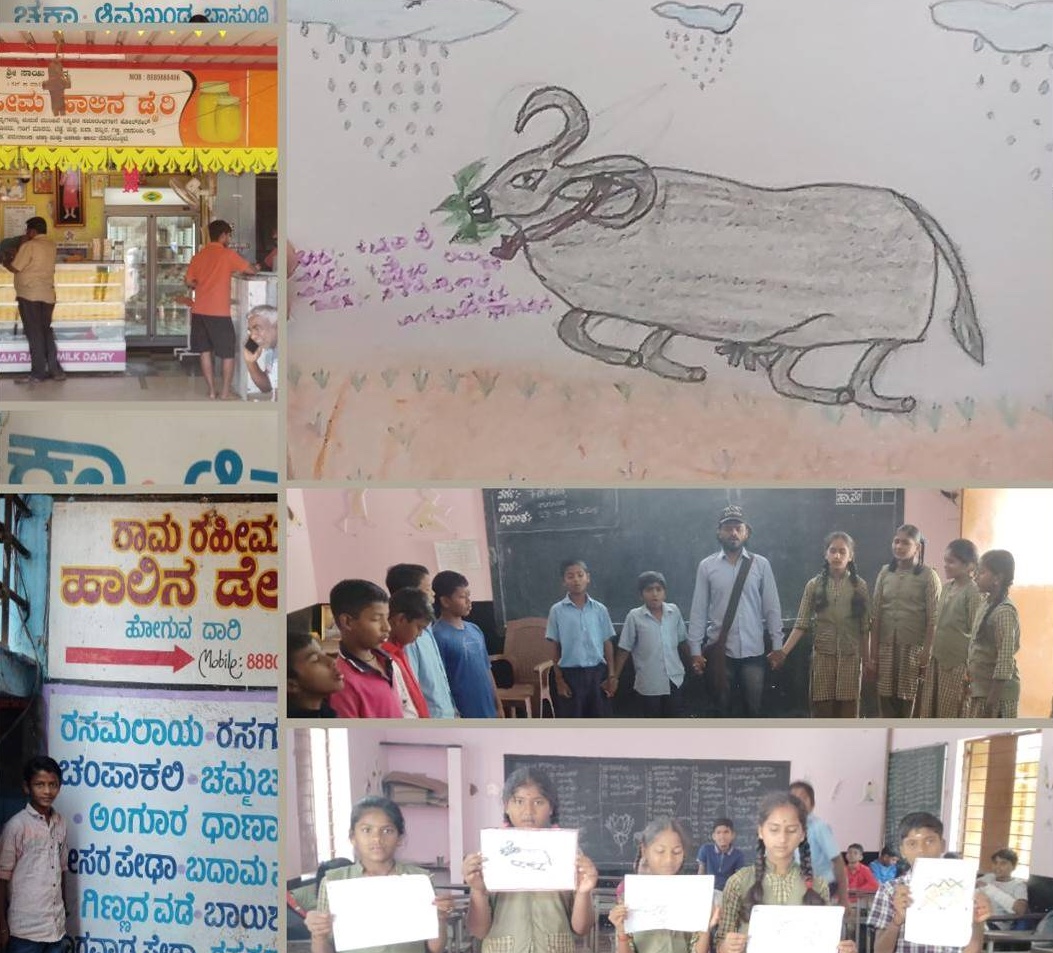Lalsab Nadaf
Project Period: One year and three months
This Foundation Project implemented by IFA will engage seventh grade students of Government Model Kannada Primary School, Maalamaddi, Dharwad district with a project exploring the art of cattle rearing and buffalo milk distribution practised by the Gauli community in and around Dharwad district, along with the exploration of the popular sweet – Dharwad Peda. Students will understand the history and geographical spread of this community, and engage with the role of the buffalo connecting it to their curriculum in social science, science, and languages. Lalsab Nadaf will be the Coordinator for this project.
Lalsab Nadaf is a theatre practitioner from Dharwad district. He has pursued a Diploma in Theatre Arts from Sri Shivakumara Ranga Prayoga Shale, Sanehalli. He has been working with various theatre ensembles across Karnataka. Nadaf has written and directed a few theatre plays for children. He has expertise in kolata, kamsale, doddu kunita, nandi kunita, and hejjemela folk art forms. He is a founder member of Jeevala theatre group in Dharwad where he is regularly involved in workshops for children in and around his village. Given his experience Lalsab Nadaf is best placed to be the Project Coordinator of this Foundation Project of IFA.
The history of the Gauli community whose main occupation is cattle raring and herding, and milk production and distribution can be traced back to 200 years. Hailing from Maharashtra, Madhya Pradesh, and Bihar their settlements can be found across the dense forests of Uttara Kannada, Dharwad and other regions in the Western Ghats. The Gauli community in Dharwad are the main custodians of a famous buffalo breed in Karnataka called Dharwadi. They have various emmekeri - buffalo sheds housed across the city of Dharwad which serve as important landmarks. Buffalo milk distribution by the Gauli community has developed over the years and is the primary ingredient in the preparation of the famous Dharwad peda. Gauli language serves as the connection to communicate and promote this milk business and represent their regional and cultural identities.
In this project, seventh grade students of Government Model Kannada Primary School in Malamaddi, Dharwad district will study the Gauli community through various arts interventions. Students will be engaged with a series of field visits and interactive sessions with community members and local artists. They will document their findings in the form of short stories and songs with support from the project coordinator. Buffalo being the central focus of this project, teachers and students will be involved in the visual representation around the buffalo. They will conduct city mapping activities and study the landscape of the region connecting it to their curriculum in social science. Students will also engage in theatrical demonstration and lecture sessions on the different breeds of buffalo and stories around the buffalo. Students will understand the history and current production and circulation of the Dharwad peda by visiting a few peda shops around their school.
The collection of local stories about the Gauli community and their contribution to the Dharwad peda which is a huge market will be studied in detail through this project. The Project coordinator will also involve students to connect their learnings to topics in their science and language textbooks and develop a theatre script which will be performed at the end of the project. Students will gather all their writings throughout the project and develop a handbook of stories and songs at the end of the project. The aim of the project is to engage the school in the art-integrated learnings around their immediate neighbourhood in Maalamaddi.
The outcome of the project will be a performance in the presence of school staff, parents and community members and a publication. The deliverables to IFA with the final report will include a copy of the publication, still and video documentation of the process, and performance.
This project suitably addresses the framework of IFA’s Arts Education programme in the manner in which it attempts to help students connect their school curriculum to the stories from the regions they inhabit and communities they live with.
IFA will ensure that the implementation of this project happens in a timely manner and funds expended are accounted for. IFA will also review the progress of the project at midterm and document it through an Implementation Memorandum. After the project is finished and all deliverables are submitted, IFA will put together a Final Evaluation to share with Trustees.



